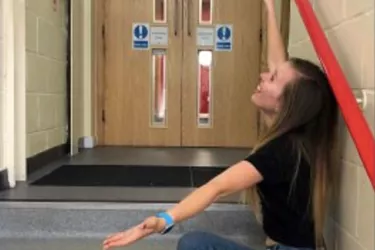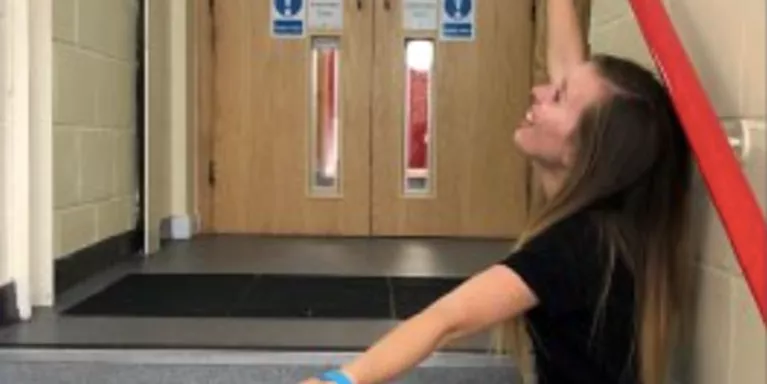How I learnt to love student life
Beth reveals how seeking help about her mental health problems transformed her university experience.
Beth is a part time Digital Media MA student and a full time technology enthusiast.
Looking back now, there have been so many times when my mental illnesses were waiting to happen. From surges of panic at parties to days of feeling flat and spaced out without knowing why. These mental health problems finally came out of hibernation a couple of years ago, during my time at university. Everyone seems to suggest it’s “the best time of your life”. But how do you admit you’re not really having the best time of your life when you’re struggling with your mental health?
I love education, and in 2015 I started my degree, hoping to fully embrace student life and all of the shenanigans that came with it. The thing is, it wasn’t that easy. I can’t really pinpoint the exact moment when things started going downhill, but I started to feel down and was worrying so much I was finding it hard to concentrate. I didn’t know much about mental health back then, so I ignored how I felt, didn’t tell anyone and belittled myself for “being so stupid”.
"I was so on edge and so overwhelmed, that my mind had pretty much left the building."
In October 2016, I once again forced myself to go out on a student night. But little did I know, that it would be my last. I had been feeling so on edge and so overwhelmed by everything, that my mind had pretty much left the building and left me feeling this weird sense of numbness. I was crying and shaking, my heart was beating fast, and I just spaced out. I’m not sure if it was a panic attack or just a major breakdown of anxiety, but from then on, it got harder to leave the house, and I was losing all my motivation and confidence in things that I used to enjoy. I led myself to believe that everyone hated me, and I guess I kind of hated myself too.
It was on World Mental Health Day that I was prompted to wonder if maybe I did need a bit of help after all. My first stop was student services; I felt embarrassed booking an appointment for something I didn’t know the cause of, and thought I would just be wasting their time and that they had other people with “real” problems to see. But I couldn’t have been more wrong. I met with a lovely mental health advisor who listened to me as I finally opened up about how I felt, and offered further counselling within the university services.
This was a huge breakthrough for me, and with counselling came the encouragement to visit a GP, who formally diagnosed me with generalised anxiety disorder and depression. I was weirdly relieved to know that I wasn’t just “making it all up”, and the counsellor helped me accept my illnesses and break down some of the stigma that I had felt.
"The counsellor helped me accept my illnesses and break down some of the stigma that I felt."
My next step was the local wellbeing service. I tried two rounds of group therapy but found them quite difficult due to my social anxiety (although I appreciate many other people benefit from groups). Nevertheless, the wellbeing service were really understanding about it, and I was offered 1:1 CBT as an alternative.
Although I knew I was lucky to be able to access treatment, I was still finding it hard to cope - especially at university. I dreaded going onto campus. I didn’t think my work would ever be good enough, and I continued to believe that I was a complete failure. I even thought about dropping out, and considering how much I loved education, this devastated me.
"My anxiety led to an hour-long breakdown in my tutor’s office. I couldn’t hide it anymore."
I had never thought about opening up to my tutors before, as I didn’t want to be a burden on them - but eventually my anxiety led to an hour-long breakdown in my tutor’s office. I couldn’t hide it anymore. I told him about how depressed I had been feeling, and how I didn’t think I would be able to make it through the rest of the year. He listened and made an effort to understand what I was going through, and encouraged me to talk to more of my tutors about my mental health. It is because of their support that I eventually started to connect with education again.
"My therapist helped me find new ways of managing my health, and helped me understand that it was OK not to be OK."
As soon as I had that acceptance in such a major part of my life, my CBT became easier to respond to. My therapist helped me find new ways of managing my health, and helped me understand that it was okay not to be okay. Although the idea of my graduation ceremony filled me with panic and dread, this time I knew that there was no shame in going back to student services to help me prepare for the day.
I’m in a much better place than I was two years ago. I’m doing a postgraduate degree, and I’ve even gone back to therapy to help manage my bad days a bit better. I am now volunteering with Richmond Borough Mind in the Youth Services team, visiting local schools and delivering workshops about the importance of wellbeing. Being able to use my experience in a positive way has helped me accept my mental health, as well as openly talk about it with others.
And if I have learnt anything throughout my experience, it’s that talking really does help.


Information and support
When you’re living with a mental health problem, or supporting someone who is, having access to the right information - about a condition, treatment options, or practical issues - is vital. Visit our information pages to find out more.
Share your story with others
Blogs and stories can show that people with mental health problems are cared about, understood and listened to. We can use it to challenge the status quo and change attitudes.

















